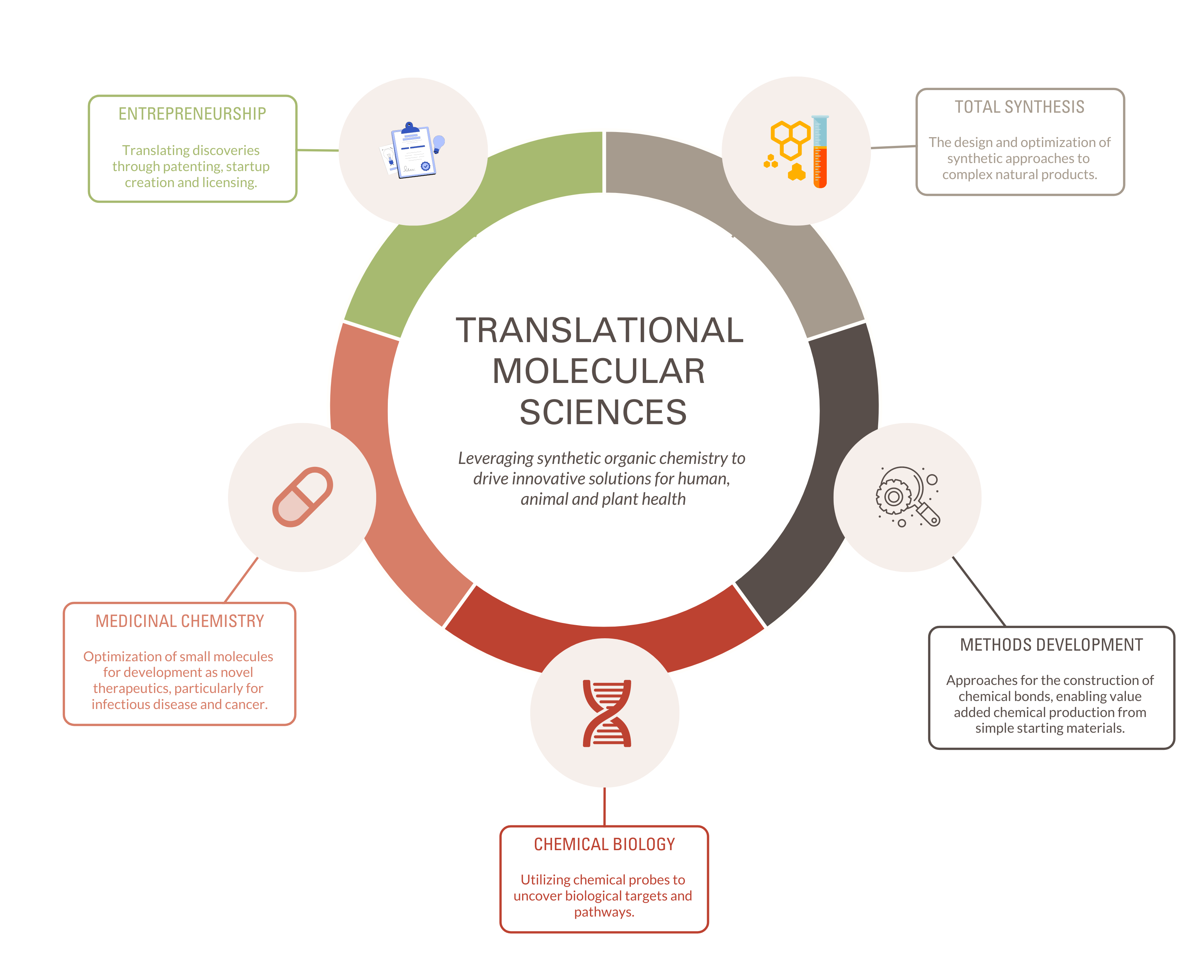Research

Natural Products Synthesis
Natural products and their analogues have provided the basis for countless biologically important drugs or probe molecules and continue to provide unique opportunities for synthetic chemistry, medicinal chemistry and chemical biology to explore. We believe that innovative syntheses of newly discovered or historically significant natural products or natural product-like scaffolds will enable the development of novel biologically active agents for drug discovery and effective probes for biological study. During the course of this work our constant aim is to push forward the efficiency, scalability and novelty of complex molecule synthesis and provide ample materials for a variety of evaluations both internally and through collaborations with experts in biology and related fields. Target molecules include alkaloids, oxazolidinone heterocycles and peptide/polyketide hybrids.
Methods Development
The pursuit of complex molecules requires innovative approaches to new molecular scaffolds, improved routes to traditional motifs and asymmetric methods for complex stereocenter installation. In addition to the constant challenges posed en route to natural products we are focused on a number of methods, including novel approaches to heterocycles such as thiazolines and oxazolidinones, chemoselective C-H oxidation and C=O reduction, electrochemistry, photoredox chemistry and asymmetric amine and guanidine synthesis. We also have an emerging program in accelerated technologies and self-driving labs through the Integrative Sciences Initiative.
Medicinal Chemistry, Chemical Biology and Drug Discovery
Natural product medicinal chemistry and related chemical biology studies are a final aim for all projects that are undertaken in our lab. Targeted analogue synthesis aimed at simplified, potent compounds will enable the exploration of biological processes and activities that can potentially be further developed into chemical probes or therapeutic agents. In addition to in-vitro studies, many of which are conducted in our lab, we aim to collaborate with experts in the biological sciences to further advance the impact of our synthetic products. Major areas of focus include anti-bacterial and anti-fungal agents (infection), anti-tumor agents (cancer) and chemical probes to study protein-protein interactions and enzyme inhibition. Key interactions with NC State’s Comparative Medicine Institute enable many of our collaborative efforts which have now resulted in several commercialization opportunities, including a startup company Synoxa Sciences, Inc.
For an interview of Dr. Pierce and an overview of research in the Pierce Group, see: Synform Interview
For a video of Dr. Pierce describing the group’s work, see: College of Sciences Video

